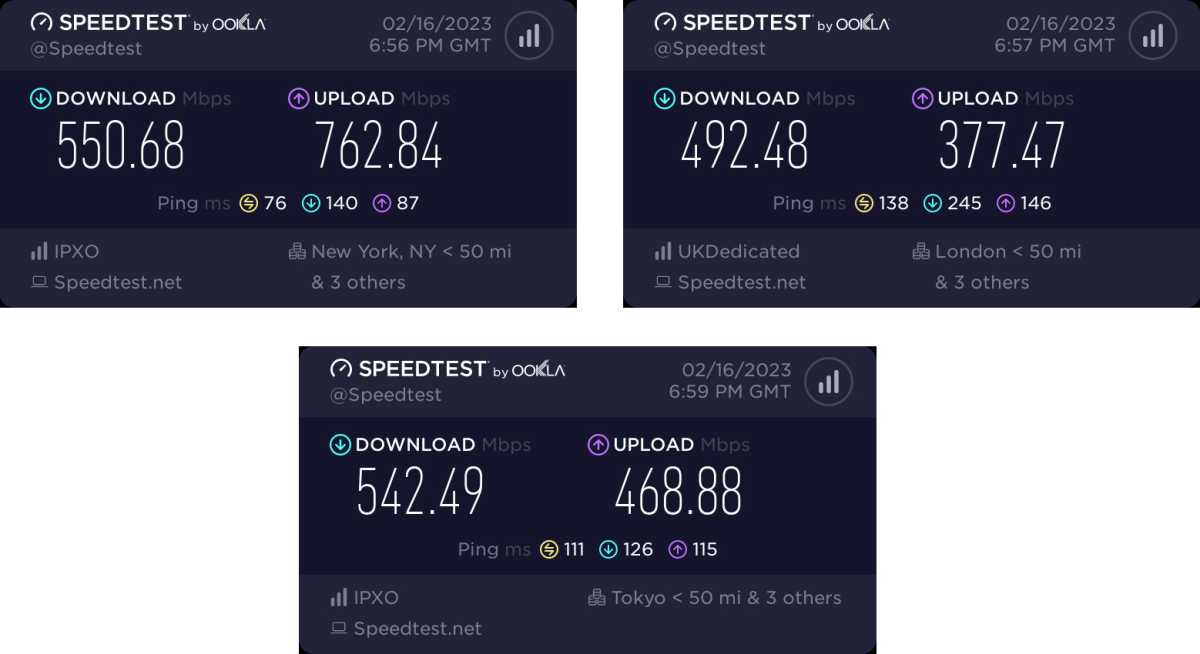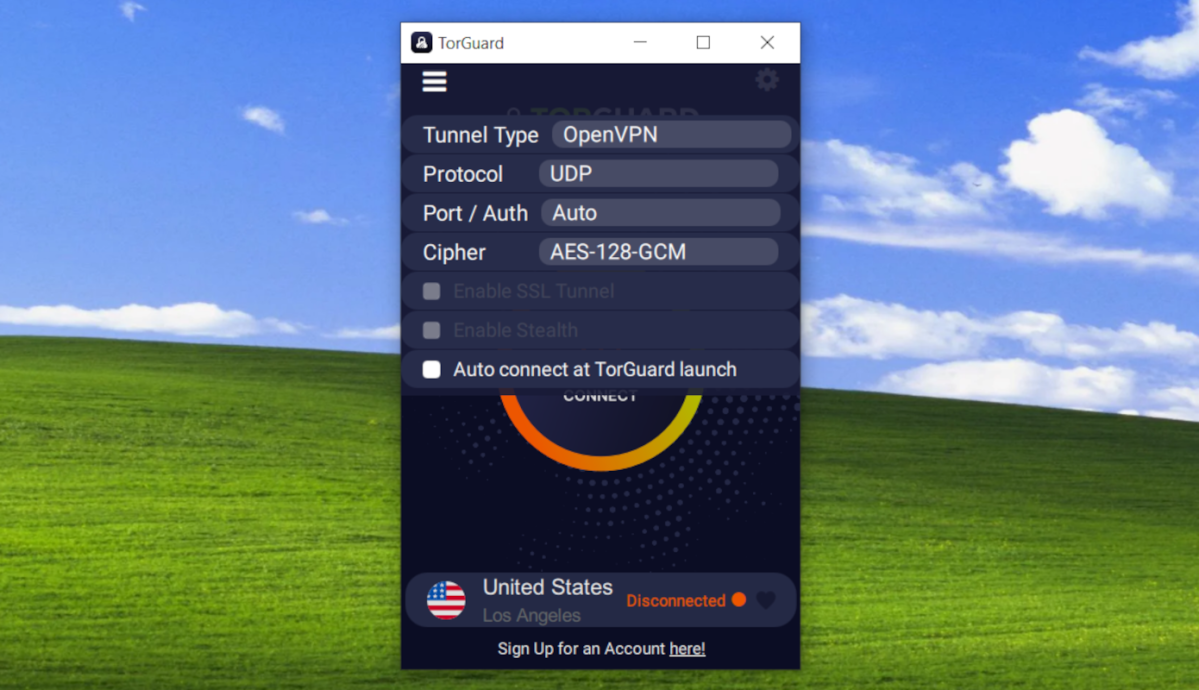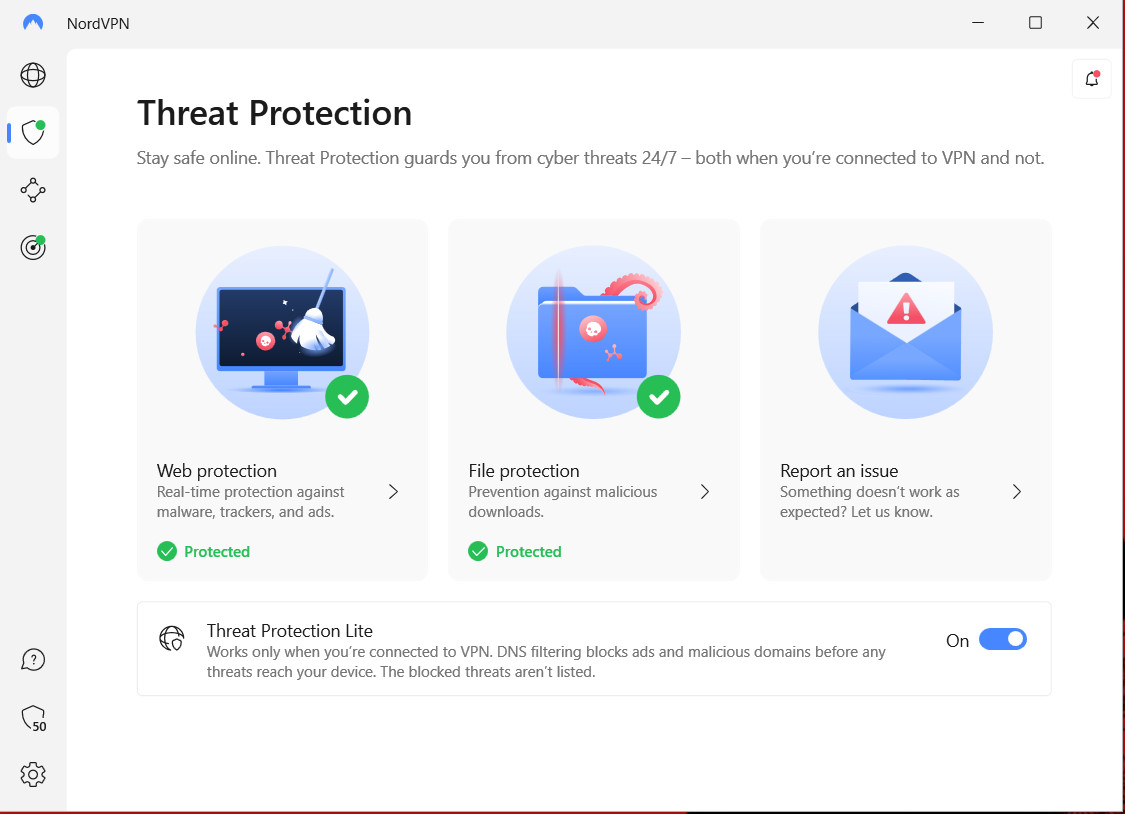- Регистрация
- 17 Февраль 2018
- Сообщения
- 25 397
- Лучшие ответы
- 0
- Баллы
- 2 093
Offline
Comparing VPNs isn’t an easy task. There are numerous services on the market, their features tend to be rather homogenous, and their pricing structures can be confusing. Nonetheless, in today’s world of heightened privacy concerns and personal data mining, it’s crucial to choose the right VPN to keep yourself safe online. That’s why we at PCWorld have developed a thorough and comprehensive method for reviewing VPN services.
All of the VPNs we test are evaluated by the same criteria. We look at:
Our goal is to provide meticulous and trustworthy information to help you easily determine the best VPN for your personal needs. Bottom line: We want you to feel confident in your choice of VPN, and help you arrive at the best conclusions based on the information we provide.
All of the VPNs we review are assessed by PCWorld staff with total editorial independence. Our decisions incorporate thorough hands-on testing, and are never influenced by outside parties. In order to make our list of Best VPNs, a VPN service must show that it excels in the criteria listed above.
How we evaluate a VPN’s servers and locations
An important component of a good VPN is the number of servers and their locations across the globe. In today’s age of international travel and entertainment, VPN users demand wide and unrestricted access to content in every region. As such, a VPN’s global server spread is now one of the most important aspects in evaluation.
In our reviews, we detail how many servers and countries a VPN covers and strive to point out more granular details, such as which servers are virtual and which are physical. Furthermore, we test a VPN’s servers all around the world for their ability to unblock geo-restricted content. Can the VPN access streaming services such as Netflix, Amazon Prime, and Disney+? Does the VPN have designated streaming servers? Is there a strong history of continued success in unblocking these sites?
These are the types of questions we seek to answer during our review process. Combined with the number and locations, we analyze the results of their unblocking capabilities and note any strengths and weaknesses we found to provide you with a comprehensive analysis of a VPN’s server environment.
How we evaluate a VPN’s speeds

Connection speed can vary from region to region, as well as between different times of day.
Adam Patrick Murray / Foundry
A VPN’s speed is one of the most important factors when considering if it’s worth buying. The very nature of a VPN means that your internet traffic will be rerouted through a different server. This will likely cause a drop in download and upload speeds compared to the base speed you get from your internet service provider. Therefore, it’s crucial that a VPN affects your base speeds as little as possible.
To test a VPN’s speeds, we compare connection speed across its servers in six different countries all around the world for multiple days. We then compare these connection speeds to our baseline internet speed without a VPN. Our comparisons include both download and upload speeds.
How we evaluate a VPN’s privacy and trust
Privacy is the centerpiece of any good VPN, so we weigh it heavily when evaluating any service. Determining a VPN’s privacy standards requires more than just reading the company’s privacy policy. We do in-depth research into a company’s background and privacy records. We then talk to representatives from the VPN itself and combine all of this with our own testing.
In order to ascertain a VPN service’s privacy standards, we comb its privacy policy, paying particular attention to things such as data collection, data sharing, and data logging. We then check these policy claims against historical records, such as potential data breaches and lawsuits, or other reported incidents.
We also look for third-party audits to verify a company’s privacy claims. These audits help in substantiating certain privacy declarations, but they may have been done in the distant past. Therefore we investigate how many audits have been published and how frequently they are undertaken.
Of course, a VPN can make all of the right privacy promises and publish multiple independent audits, but that may all be for naught if the service is subject to government data-sharing requirements. So, in assessing a VPN’s overall privacy, we research where the company operates out of, and if that jurisdiction is a member of any data-sharing alliances such as Five Eyes, 9 Eyes, or 14 Eyes.
A VPN that is located in a member state of these alliances is not necessarily marked down, but we make sure to note this fact and discuss its implications so that users can make their own judgment call.
How we evaluate a VPN’s security

With TorGuard, you’re able to tweak and customize your OpenVPN protocol settings to help get around stubborn firewalls.
Sam Singleton
Security goes hand-in-hand with privacy and is another critical factor when testing a VPN. A service should have a minimum of AES 256-bit encryption—although an option to change to AES 128-bit encryption can be useful in the right circumstances as well.
Additionally, we check to see what server infrastructure the VPN is running. Ideally, we want to see diskless, RAM-only servers. While most VPN services have begun using these, if it has an older or less secure server infrastructure, we mark down our review accordingly.
We also look at the number and types of VPN protocols available. Older or outdated protocols are highlighted in order to bring them to the attention of readers. And we conduct DNS leak tests across multiple servers and all protocols to detect if a user’s original IP address is being leaked while connected to the VPN.
How we evaluate a VPN’s usability and additional features

Included with NordVPN are great additional security features for malware and ad blocking.
Sam Singleton
As VPNs become more and more popular, companies are beginning to offer additional features to their services to make them stand out in a crowded market. Some of these features are quite welcomed and useful while others seem rather gimmicky.
When PCWorld reviews a VPN service, we take into consideration all of these additional features in our final assessment. Of course, we believe that some features are more important than others and thus we weigh them more heavily. Features such as split-tunneling, multi-hop, and ad/tracker-blocking can greatly benefit a user and are highlighted in our reviews.
Finally, we aim to provide a sense of the less tangible aspects of a VPN: user experience. A service may be loaded with great features, but if a user can’t intuitively understand how to use them, then this is a huge disservice. Including both hands-on descriptions as well as screenshots throughout our reviews, we endeavor to give the reader a good overview of how this VPN feels to work with, and what kind of user might get the most out of the service.
How we evaluate a VPN’s pricing
When we are comparing prices among VPNs, we include the standard monthly pricing as well as a yearly, or bi-yearly plan if it’s available. This is because almost every VPN provides a discount for users who sign up for long-term subscription plans.
Our goal is to compare and contrast the standard pricing as well as any incentivized discounts so that users can make an informed decision on which pricing structure for each VPN is best for them.
In our reviews, we prioritize monthly subscriptions, as they are the simplest way to directly compare two or more VPNs’ subscription pricing. Also, in general we believe that when signing up for a new VPN, it is advisable to start with one month so that you can get a feel for the service before making a longer-term commitment.
How to interpret our VPN rating system
At PCWorld we try to keep it pretty straightforward with ratings. We rate a VPN on a scale of 0 to 5 stars, with 5 being the best. An outstanding VPN with great speeds, a demonstrated history of protecting user privacy, solid security, and nice extra features will be given a 5 star rating. If any of the aforementioned criteria are lacking in any way, we will reduce the rating accordingly. Some criteria such as privacy are weighted more heavily and will therefore cause the rating to drop more significantly if there are any issues to be found.
We also award Editor’s Choice badges, which signify the VPN is truly exceptional and one of the best services on the market. The Editor’s Choice badge will be awarded to a VPN if it gets a 4.5 or 5 star rating.
VPN
All of the VPNs we test are evaluated by the same criteria. We look at:
- The number of servers and their locations
- The speed of the VPN’s connections
- Privacy protections offered, and the transparency of the owners
- Software experience and usability
- Additional features that come with the service
- The price and value of subscriptions
Our goal is to provide meticulous and trustworthy information to help you easily determine the best VPN for your personal needs. Bottom line: We want you to feel confident in your choice of VPN, and help you arrive at the best conclusions based on the information we provide.
All of the VPNs we review are assessed by PCWorld staff with total editorial independence. Our decisions incorporate thorough hands-on testing, and are never influenced by outside parties. In order to make our list of Best VPNs, a VPN service must show that it excels in the criteria listed above.
How we evaluate a VPN’s servers and locations
An important component of a good VPN is the number of servers and their locations across the globe. In today’s age of international travel and entertainment, VPN users demand wide and unrestricted access to content in every region. As such, a VPN’s global server spread is now one of the most important aspects in evaluation.
In our reviews, we detail how many servers and countries a VPN covers and strive to point out more granular details, such as which servers are virtual and which are physical. Furthermore, we test a VPN’s servers all around the world for their ability to unblock geo-restricted content. Can the VPN access streaming services such as Netflix, Amazon Prime, and Disney+? Does the VPN have designated streaming servers? Is there a strong history of continued success in unblocking these sites?
These are the types of questions we seek to answer during our review process. Combined with the number and locations, we analyze the results of their unblocking capabilities and note any strengths and weaknesses we found to provide you with a comprehensive analysis of a VPN’s server environment.
How we evaluate a VPN’s speeds

Connection speed can vary from region to region, as well as between different times of day.
Adam Patrick Murray / Foundry
A VPN’s speed is one of the most important factors when considering if it’s worth buying. The very nature of a VPN means that your internet traffic will be rerouted through a different server. This will likely cause a drop in download and upload speeds compared to the base speed you get from your internet service provider. Therefore, it’s crucial that a VPN affects your base speeds as little as possible.
To test a VPN’s speeds, we compare connection speed across its servers in six different countries all around the world for multiple days. We then compare these connection speeds to our baseline internet speed without a VPN. Our comparisons include both download and upload speeds.
How we evaluate a VPN’s privacy and trust
Privacy is the centerpiece of any good VPN, so we weigh it heavily when evaluating any service. Determining a VPN’s privacy standards requires more than just reading the company’s privacy policy. We do in-depth research into a company’s background and privacy records. We then talk to representatives from the VPN itself and combine all of this with our own testing.
In order to ascertain a VPN service’s privacy standards, we comb its privacy policy, paying particular attention to things such as data collection, data sharing, and data logging. We then check these policy claims against historical records, such as potential data breaches and lawsuits, or other reported incidents.
We also look for third-party audits to verify a company’s privacy claims. These audits help in substantiating certain privacy declarations, but they may have been done in the distant past. Therefore we investigate how many audits have been published and how frequently they are undertaken.
Of course, a VPN can make all of the right privacy promises and publish multiple independent audits, but that may all be for naught if the service is subject to government data-sharing requirements. So, in assessing a VPN’s overall privacy, we research where the company operates out of, and if that jurisdiction is a member of any data-sharing alliances such as Five Eyes, 9 Eyes, or 14 Eyes.
A VPN that is located in a member state of these alliances is not necessarily marked down, but we make sure to note this fact and discuss its implications so that users can make their own judgment call.
How we evaluate a VPN’s security

With TorGuard, you’re able to tweak and customize your OpenVPN protocol settings to help get around stubborn firewalls.
Sam Singleton
Security goes hand-in-hand with privacy and is another critical factor when testing a VPN. A service should have a minimum of AES 256-bit encryption—although an option to change to AES 128-bit encryption can be useful in the right circumstances as well.
Additionally, we check to see what server infrastructure the VPN is running. Ideally, we want to see diskless, RAM-only servers. While most VPN services have begun using these, if it has an older or less secure server infrastructure, we mark down our review accordingly.
We also look at the number and types of VPN protocols available. Older or outdated protocols are highlighted in order to bring them to the attention of readers. And we conduct DNS leak tests across multiple servers and all protocols to detect if a user’s original IP address is being leaked while connected to the VPN.
How we evaluate a VPN’s usability and additional features

Included with NordVPN are great additional security features for malware and ad blocking.
Sam Singleton
As VPNs become more and more popular, companies are beginning to offer additional features to their services to make them stand out in a crowded market. Some of these features are quite welcomed and useful while others seem rather gimmicky.
When PCWorld reviews a VPN service, we take into consideration all of these additional features in our final assessment. Of course, we believe that some features are more important than others and thus we weigh them more heavily. Features such as split-tunneling, multi-hop, and ad/tracker-blocking can greatly benefit a user and are highlighted in our reviews.
Finally, we aim to provide a sense of the less tangible aspects of a VPN: user experience. A service may be loaded with great features, but if a user can’t intuitively understand how to use them, then this is a huge disservice. Including both hands-on descriptions as well as screenshots throughout our reviews, we endeavor to give the reader a good overview of how this VPN feels to work with, and what kind of user might get the most out of the service.
How we evaluate a VPN’s pricing
When we are comparing prices among VPNs, we include the standard monthly pricing as well as a yearly, or bi-yearly plan if it’s available. This is because almost every VPN provides a discount for users who sign up for long-term subscription plans.
Our goal is to compare and contrast the standard pricing as well as any incentivized discounts so that users can make an informed decision on which pricing structure for each VPN is best for them.
In our reviews, we prioritize monthly subscriptions, as they are the simplest way to directly compare two or more VPNs’ subscription pricing. Also, in general we believe that when signing up for a new VPN, it is advisable to start with one month so that you can get a feel for the service before making a longer-term commitment.
How to interpret our VPN rating system
At PCWorld we try to keep it pretty straightforward with ratings. We rate a VPN on a scale of 0 to 5 stars, with 5 being the best. An outstanding VPN with great speeds, a demonstrated history of protecting user privacy, solid security, and nice extra features will be given a 5 star rating. If any of the aforementioned criteria are lacking in any way, we will reduce the rating accordingly. Some criteria such as privacy are weighted more heavily and will therefore cause the rating to drop more significantly if there are any issues to be found.
We also award Editor’s Choice badges, which signify the VPN is truly exceptional and one of the best services on the market. The Editor’s Choice badge will be awarded to a VPN if it gets a 4.5 or 5 star rating.
VPN
